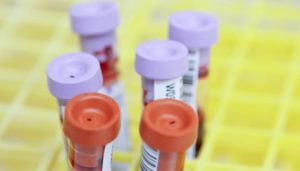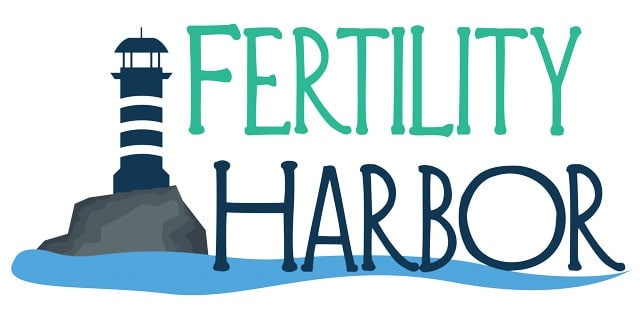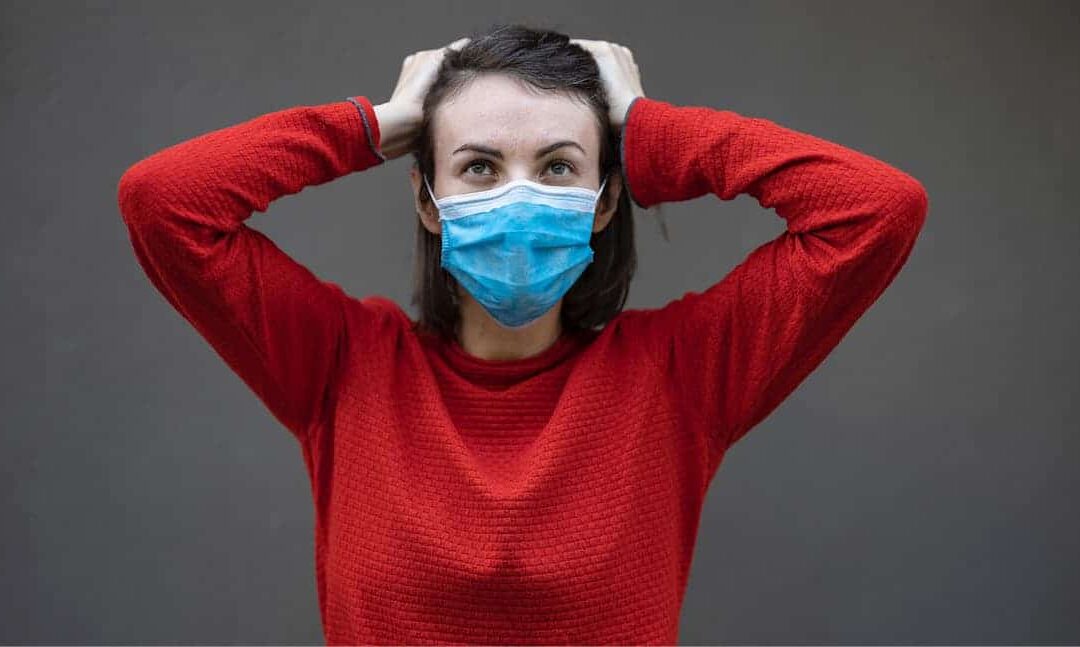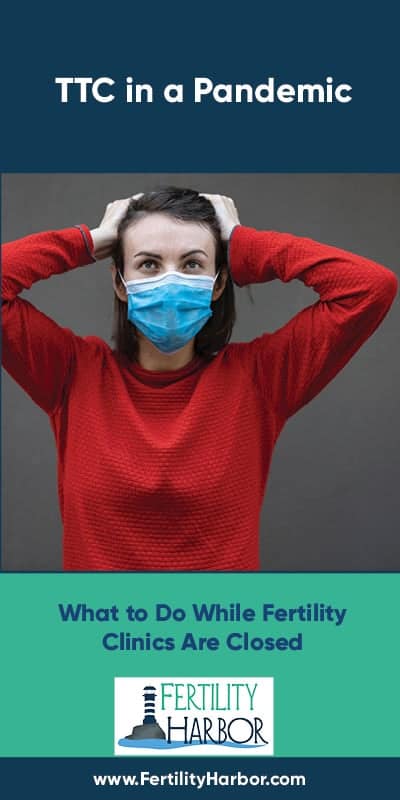This post was reviewed for medical accuracy by Rosalie Gunson, a Certified Registered Nurse Practitioner specializing in fertility care.
The COVID-19 pandemic has caused ripple effects — okay, more like a tsunami — across the healthcare system. To “flatten the curve” and reduce the strain on hospitals, patients with other medical conditions have had to postpone appointments and even surgeries. Millions of people are in limbo, waiting for treatment that’s needed but considered elective.
Where does this leave fertility treatment? Can you proceed with a planned IVF cycle, for example, during the COVID-19 pandemic?
The level of fertility treatment that you can get right now depends on many factors, but where you live is the most important one.
- In the United States, the stay-at-home/ shelter-in-place orders are mostly coming from governors. There is no mandatory national lockdown.
- The specific restrictions in each state are different, and they apply for different periods of time. It’s not always clear when or how affected businesses will be able to reopen.
- Associations and advocacy groups have issued recommendations to help coordinate the response in particular industries.
- Individual providers and healthcare networks are making their own decisions as well. Some providers that could have stayed open have chosen to close or scale back their services to protect their employees and the public. Also, in areas with severe outbreaks, healthcare workers of all kinds are needed to help care for COVID-19 patients.
Even though I can’t provide answers that will apply to everyone, I still want to talk about the impact of the COVID-19 pandemic on fertility treatment (and prenatal care). It felt weird not to address the #1 topic on everyone’s mind right now! So here’s what I’ve learned so far…
As always, this post is not a substitute for medical advice. Please check with your providers to find out what services, if any, they are offering right now and how your treatment plan will be affected.
Fertility-Related Testing During the COVID-19 Pandemic
When people think of fertility treatment they often think of procedures, such as IUI and IVF. But in my experience, most infertility appointments are for testing, such as:
- Blood tests to check hormone levels (progesterone, estrogen, hCG, etc.)*
- Transvaginal ultrasound
- HSG
If you’re at the beginning of your fertility journey and you haven’t had baseline testing yet, you might be able to do it during the pandemic. Some states and clinics are still allowing bloodwork and ultrasounds as part of an initial fertility workup, even if they’re not doing new medicated cycles.
 Some fertility clinics are no longer doing on-site collection for semen analysis, but will still test samples that are dropped off — as long as the sample was collected very recently, kept within the appropriate temperature range, etc. If you’re going to do this, be sure to follow the directions they give you.
Some fertility clinics are no longer doing on-site collection for semen analysis, but will still test samples that are dropped off — as long as the sample was collected very recently, kept within the appropriate temperature range, etc. If you’re going to do this, be sure to follow the directions they give you.
Many larger clinics are also offering remote visits for initial consults or follow-ups, which many patients might find more convenient anyway. It will be interesting to see if these options are continued once the the world reopens. (I have to say that as a mom with two 4-year-olds, I love virtual appointments!)
*Fertility clinics and OB practices often take blood on-site, but they only test for medical conditions that are directly related to women’s health and pregnancy. If you think you may be experiencing symptoms of COVID-19, contact your primary care doctor or local hospital for guidance.
Starting Fertility Treatment During the COVID-19 Pandemic
The American Society for Reproductive Medicine (ASRM) has recommended against starting new fertility treatments during the pandemic, for two reasons:
- Many types of non-emergency medical care are being postponed to help “flatten the curve” and keep hospitals from being overwhelmed.
- Since the virus is still new, there hasn’t been enough time to study its potential effects on fetal development. It’s important to note, though, that the American College of Obstetricians and Gynecologists (ACOG) has not told the general public that it’s unsafe to conceive right now, the way it did with the Zika outbreak.
The ASRM recommendations do not vary based on the severity of the outbreak in the area. Some providers have argued that the restrictions are necessary in COVID-19 hotspots like New York City, but should be relaxed in communities that have fewer cases.
Onco-Fertility and Other Exceptions
While most fertility clinics are not beginning new cycles right now, some clinics have made exceptions for certain circumstances.
Shady Grove Fertility is still doing new cycles on a case-by-case basis, when there’s reason to believe the patient may not be able to conceive if treatment is delayed even a month or two.
For example, chemo and radiation can seriously damage long-term fertility. To preserve the chance to have children in the future, some oncology patients try to freeze eggs or embryos before they start treatment. For obvious reasons it’s risky to postpone treatment for cancer, so these onco-fertility cycles usually need to be done ASAP.
Continuing Fertility Treatment During the COVID-19 Pandemic
At the start of the COVID-19 outbreak in the United States, fertility patients in the middle of medicated cycles were advised to freeze any embryos they could. Those cycles have obviously ended by now.
If you were able to freeze embryos, rest assured that they won’t be abandoned during the pandemic! Your embryos will be kept safe until the world opens up again. The post Should You Do a FET If You Are Sick? has some good info about IVF cycles with frozen embryos.
Sperm banks are still going strong, too! People who need donor sperm but not IVF can actually have sperm shopped to their house for at-home insemination. For more on this, see Seattle Sperm Bank’s article “Home Insemination is a Great Option During Times of Travel Restrictions and Social Distancing.”
In-home insemination obviously won’t work in all situations, but it can be ideal for lesbian couples, straight couples with severe male-factor infertility problems, and mamas who are single by choice.
Preparing to TTC After the COVID-19 Lockdowns Are Lifted
If you were planning to do IUI, IVF, or some other form of fertility treatment that has been delayed due to the pandemic, you may wonder what you’re supposed to do in the meantime.
 Did you know calling insurance companies is a fun way to spice up a boring afternoon at home?!
Did you know calling insurance companies is a fun way to spice up a boring afternoon at home?!
But seriously, researching your health plan’s coverage is a concrete thing you can do to prepare for future fertility treatment. (Unfortunately, millions of Americans are losing their jobs and their health insurance as a result of this crisis, but that’s a whole ‘nother discussion…)
For more info on the costs of fertility treatment, check out How Much Does an IUI Cost Without insurance? and Insurance Coverage for Fertility Treatment: 8 Things to Know.
In general, just try to take good care of yourself during these strange times. Here are some examples of healthy habits that will help lay a good foundation for a BFP and a healthy pregnancy when the world reopens (borrowed from my post TTC Right After Your Wedding):
- Keep taking your prenatal vitamins, along with any medications or supplements your fertility team has prescribed.
- If you smoke, quit!
- If you drink alcohol regularly, quit or at least dial back.
- Make time for relaxing hobbies (to cope with the stress of the pandemic as well as from infertility)
- Exercise a moderate (but not extreme) amount.
- Eat well-rounded, nutritious meals.
- Maintain a healthy weight — without crazy crash diets.
Social distancing has meant that everyone is going digital with their content. It won’t be hard to find a high-quality app, online course, etc. to help you make progress with your health and wellness goals. You could even go crazy and try out that meditation app you downloaded six months ago! (I can’t be the only one…)
For lots of reasons, I don’t talk about diet and nutrition much on this site… but what we eat has an undeniable impact on our fertility and overall health. If you’re interested in making sustainable changes to your diet while social distancing, look for a registered dietician who offers remote consultations.
Be sure to choose someone with expertise in women’s health and functional medicine. Melissa of Avocado Grove does virtual nutrition counseling for women with PCOS and other hormonal issues, and she’s AWESOME!
Prenatal Care During the COVID-19 Pandemic
If you’re pregnant and you’ve already graduated from an RE to an OB, you will probably find that COVID-19 will affect your prenatal care.
As long as you’re not experiencing complications, you’ll probably have fewer prenatal appointments than you otherwise would have. Providers are trying to protect their patients (and themselves!) during the pandemic by limiting office visits.
It’s likely that you and your midwife/ doctor will have to wear masks during your appointments. You may also be told that you can’t bring anyone — even the baby’s father! — with you. Make sure your phone is charged so you can take video of ultrasounds and other important milestones!
You may also find that childbirth prep classes, prenatal yoga, and other programs for pregnant mamas have been cancelled or moved online during the pandemic.
Giving Birth During the COVID-19 Pandemic
I wrote this post in April/ May 2020. Hospitals in my area were starting to limit visitor access due to the pandemic. Those rules continue to change in response to local COVID-19 infection rates.
At the height of the crisis, some hospitals around the country actually banned all visitors, including birth partners and doulas! My closest hospital is still allowing laboring women to have one visitor total during their stay. Whew!
Aside from visitor access, giving birth during the pandemic shouldn’t be much different from normal — just with more masks. Hospitals are also testing all their maternity patients for COVID-19, partly so they know if the newborn baby will need special treatment.
Precautions That Could Continue When the World Reopens
It’s too soon to say how exactly medical care will be different when the world reopens, but it’s doubtful that everyone will go straight back to how things were done before.
So don’t be surprised if some virus-related precautions continue after the quarantine restrictions are lifted. That could include fewer in-person appointments, social distancing in waiting rooms, and screening patients for fever and COVID-19 exposure.
I’m guessing we can all expect to answer questions like, “Have you had any contact with anyone who tested positive for COVID-19?” for quite some time.
Final Thoughts
 If you’re hoping to get pregnant when this is all over, you should probably eat a vegetable or two. But don’t beat yourself up if you’re not perfecting your Mandarin or Marie-Kondo’ing every inch of your house right now.
If you’re hoping to get pregnant when this is all over, you should probably eat a vegetable or two. But don’t beat yourself up if you’re not perfecting your Mandarin or Marie-Kondo’ing every inch of your house right now.
These are not normal times, and Instagram is not real life.
This crisis has blown up pretty much every aspect of our lives, including the systems we rely on for support. It would be weird if we didn’t feel overwhelmed and adrift!
So give yourself some grace, and don’t forget to wash your hands. <3
FURTHER READING:
COVID-19 Support Resource Center – RESOLVE
Patient Management and Clinical Recommendations During the Coronavirus (COVID-19) Pandemic – American Society for Reproductive Medicine (ASRM) — Currently on Update #13!
Universal Screening for SARS-CoV-2 in Women Admitted for Delivery – New England Journal of Medicine
Novel Coronavirus 2019 (COVID-19) Practice Advisory – American College of Obstetricians and Gynecologists (ACOG)
Coronavirus (COVID-19) and Women’s Health Care: A Message for Patients – American College of Obstetricians and Gynecologists (ACOG)
Vaccinating Pregnant and Lactating Patients Against COVID-19 – American College of Obstetricians and Gynecologists (ACOG)
 This post was originally published in May 2020, with minor updates in January and March 2021.
This post was originally published in May 2020, with minor updates in January and March 2021.



 I’m Jenn! Here I am with my beautiful twin boys. My pregnancy was possible thanks to fertility treatment for PCOS.
I’m Jenn! Here I am with my beautiful twin boys. My pregnancy was possible thanks to fertility treatment for PCOS.


